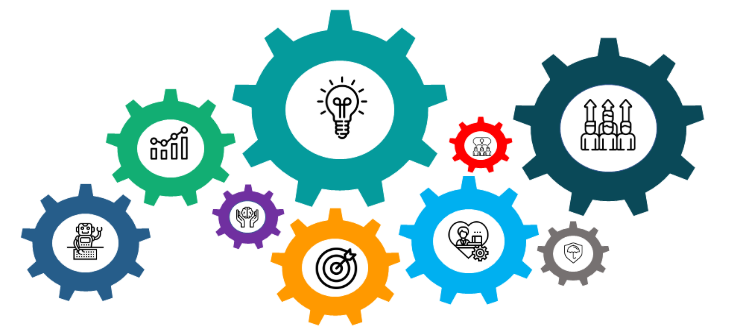Sign Up for Our
Updates
Robotic Process Automation is gaining momentum in the healthcare industry, with trusts across the UK implementing bots to assist with back-office efficiency. But with 30-50% of initial RPA projects failing, it is crucial to look at the best practice approach to implementing an RPA strategy to ensure you are not one of them!
What are the biggest pain points to RPA Implementation?
So, let's start by looking at the areas where many businesses struggle when implementing RPA projects for the first time.
1. Choosing an activity to automate
Many companies begin an automation project without a clear picture of what the ROI will be for that project. They attempt to estimate the outcome and expected improvement with minimal or no statistics.
2. Pre-automation investment
Once the activity has been chosen, the company then invests heavily in the pre-automation stage. Business analysts spend several weeks pulling together the information on how the process works, what activities are involved, the variance, different paths and the exceptions. An astounding 70% of the automation budget is generally spent pre-automation.
3. Unexpected bottlenecks
Once you finally launch the bot, you find that it creates unexpected bottlenecks in the process. One stage may be happening more efficiently, but it hasn't had the outcome that you had anticipated.You then spend a lot of time testing and tweaking to find the solution and figure out why you didn't achieve the ROI you expected.
4. Scaling up
We know that only 4% of automation projects reach a 50 robot scale. This low level of scalability occurs because companies don’t have full visibility on their RPA, which makes implementing bots high risk. Organisations are understandably reluctant to invest further if their initial project didn't achieve the expected ROI and they aren't sure why. How do you know which activity to automate next and if automating the next activity will bring benefits?
The case for task and process mining
To ensure that your automation projects are a success, you need insight into what your bots will do and how they will interact with people. You also need to be able to predict what the potential consequences and scenarios are once you launch these bots.
This is where process mining and task mining come in.
In a nutshell, process mining gathers your business data from different stakeholders such as your CRM, ERP and IOT.Task mining then collects user interaction data directly from the users' desktop and then uses an algorithm to generate an event log for that data automatically. Using a tool like myInvenio, you can then have a clear picture of the end to end process of the recorded task. This gives you valuable insight into your current process and how it is working now.
From there, you can use a digital twin of your organisation to simulate automation of different tasks and forecast the ROI accurately. This approach allows you to eliminate bottlenecks and complete any reworks before you disrupt your live processes.
Once you find the best RPA strategy inside the DTO to help you reach your goals, you can take that strategy and apply it to your real process. Then, once the strategy has been implemented, it is crucial to continuously monitor the performance of your bots and optimise them where necessary.
For more information on establishing a robust automation strategy within your organisation, you might be interested in these articles:
How to Optimise your Organisation for Hyperautomation


